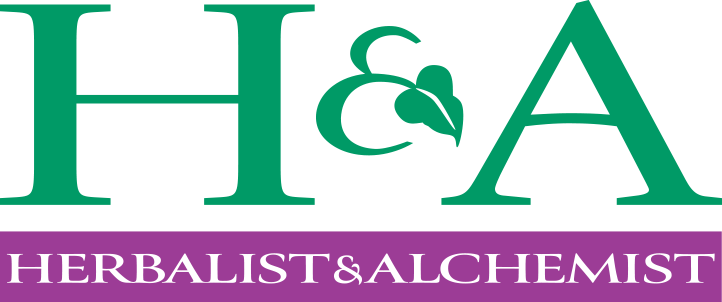There are multiple categories of herbs that affect the immune system, and many (if not all) herbs affect more than one aspect of it. Research has shown that botanicals can work via multiple mechanisms. In the herbal literature the term immune modulator is often used; this term is unfortunately so broad that is has little meaning because it applies to any herb that has any effect on the immune system. I find it better to use terms with greater specificity that give a more precise sense of an herb’s actual actions and effects, which helps us to use the appropriate herbs and herbal formulas to address immune issues with greater efficacy and safety.
For simplicity’s sake, we can say some herbs stimulate the surface immune system (what in TCM is called the Wei Qi. Herbs that primarily work in this way include Echinacea, Elderberry or Flower, Hyssop, Andrographis, Isatis and Yarrow, among others. These herbs are primarily used to treat what is known in Traditional Chinese Medicine (TCM) as blood heat or damp heat.
The Internal (Specific) immune response has two main components, cell mediated which includes the T lymphocytes (Th1 T lymphocytes, T helper cells, T suppressor cells, T cytotoxic cells and Lymphokines). Herbs that support cell mediated immune response include Reishi (Ganoderma), Usnea, Myrrh, Garlic, Lomatium, and Chinese Honeysuckle flower.
The second part of the Specific immune response is the humoral (immune globulin) mediated response. This includes the B lymphocytes as well as the Th2 T lymphocytes. Herbs that support humoral immunity include Elderberry, Echinacea, Basil, Thyme. Herbs that balance excess normal immune response without being immuno-suppressive include Turmeric, Gotu Kola, Dan Shen, Baikal Skullcap, Bupleurum, Boswellia.
The endocrine immune response works via the HPA (hypothalamic-pituitary-adrenal) axis and is an interface between the nervous system, the gut and immune system. Adaptogens have a significant effect here and include Ashwagandha, Asian or American Ginseng, Schisandra, Eleuthero, and Rhodiola. Some herbs such as Maitake, Reishi, Astragalus, Schisandra, Ashwagandha, Licorice, and Cat’s Claw act as immune amphoterics. These herbs help to nourish and strengthen the immune system, promoting immune competence and effective self-regulatory capacity.
The immune reservoir is a concept I created based on the TCM idea of the body’s ability to mount an appropriate response to immunological challenges. While there is not an actual “immune reservoir,” the bone marrow, gut immune system and intestinal microbiome correlate most closely as an anatomical “immune reservoir.” Immune supporters such as Reishi, Astragalus, Maitake, Cordyceps, Turkey Tail, Codonopsis, Chaga, and Licorice are useful for strengthening overall immune response.
Many herbs that effect the immune reservoir also act as immune amphoterics, which are herbs that balance normal imumne response whether it is hypoactive, hyperactive, or both. Immune amphoterics include Licorice, Ashwagandha, Asian and American Ginseng, Reishi, Maitake, Astragalus, Cordyceps, etc.
And although herbs can be very helpful in supporting the immune function, there are other components I recommend:
Essentials for a healthy Immune System:
- A sense of purpose/goals
- Love/friendship/community
- Healthy spirituality
- Relatively clean environment – air, water, home, work
- Early exposure to normal dirt, bacteria, breast feeding, pets
- Healthy diet including fermented foods, food sources of Vitamin A and D, zinc
- Berries, dark green leafy vegetables, omega 3 fatty acids
- Have fun/play
- Adequate good quality sleep
- A healthy gut microbiome
